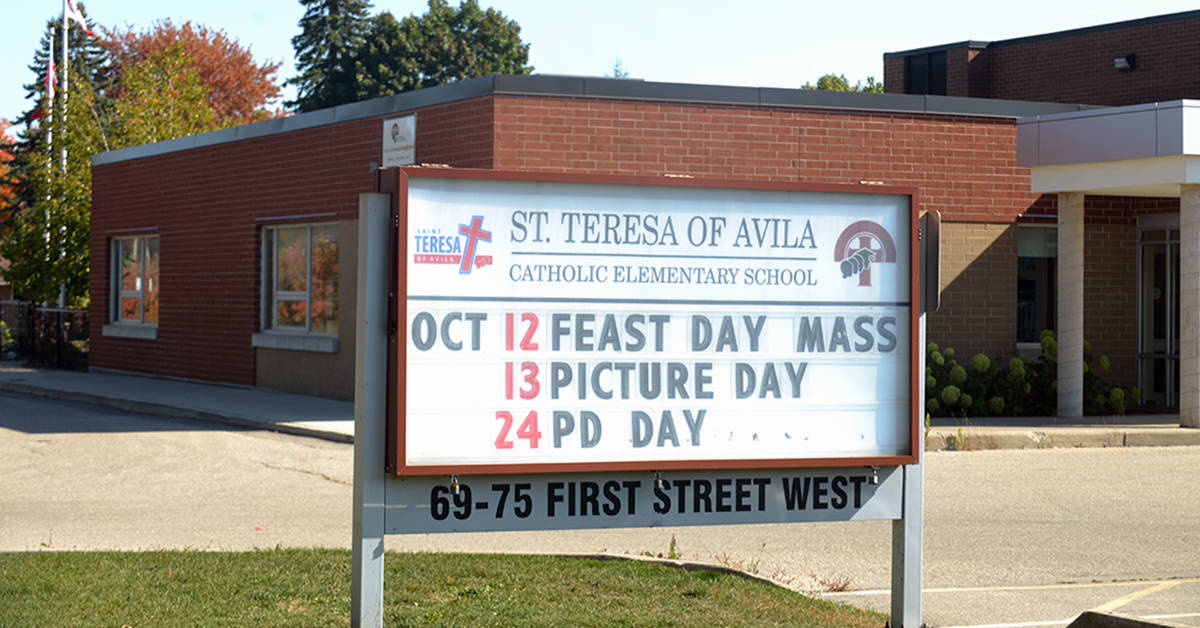Gearing up for a battle with the province, educational support staff have voted overwhelmingly in favour of strike action if needed.
The Canadian Union of Public Employees (CUPE) reported Monday that 96.5 per cent of workers – the likes of educational assistants, early childhood educators and custodians – supported the stance.
CUPE represents some 55,000 such school workers.
The president of the union’s local chapter said striking is a last ditch effort, however.
“What [the vote] does show the government is that we’re serious. It would be something, but we love working with our students, we don’t want to go on strike. We take these jobs because we love being in schools and working with students. And we voted ‘yes’ for the same reason, so that we can show up with our very best every day,” said CUPE 2512 president Mechelle O’Hagan.
“The strike vote is about our colleagues’ voices being heard. We want to be heard loud and clear that the result is a strong strike mandate for a strong position to advocate for student success and good jobs.”
On Monday the provincial union revealed that more than 45,000 of the workers it represents participated in the vote, with almost 44,000 in favour of strike action. CUPE and the provincial government have bargaining dates set for today (October 6) and tomorrow, as well as October 17 and 18.
CUPE 2512 represents some 1,200 workers at the Waterloo Catholic District School Board. This includes administrative assistants, childcare workers, educational assistants, computer technicians, library technicians and lunch hour supervisors. WCDSB declined a request for an interview to discuss possible contingency plans if a strike does happen.
“The WCDSB encourages the government and CUPE to continue bargaining in good faith for the benefit of all students,” said chief managing officer John Shewchuck in an email.
The province has proposed a wage increase of two per cent for all employees making less than $40,000 a year and 1.25 per cent for those making more than that. CUPE has countered with an annual increase of 11.25 per cent or $3.25 per hour, in each of the next three years. They are also asking for more workers to be hired.
“Education workers are standing up and saying in one unified voice: we demand better,” said Laura Walton, president of CUPE’s Ontario School Boards Council of Unions (OSBCU) in a statement.
According to the Canadian Centre for Policy Alternatives, educational funding has fallen by $800 per student since Doug Ford became premier.
In a released statement, Minister of Education Stephen Lecce said he was “extremely disappointed” with the results of the vote.
“As CUPE moves ahead towards a strike that hurts kids and disrupts families – leaving behind a reasonable offer that also protects the most generous benefits and pension plan in the country – we will continue to remain at the table to make sure kids stay in class without interruption right through to June,” Lecce said.
O’Hagan said the minister was “fear-mongering” about the workers.
“They play the parents against us, and there’s no way our union ever said that. I don’t know of any unionists that are with CUPE that have ever felt that way. We’ve always had our students’ best interest in mind, because we have families, too. We have our children in education too. And so absolutely not I do not agree with his statement whatsoever. That is not our goal. And it never will be.”
O’Hagan denied that the wage increase is asking taxpayers to pay significantly more for education.
“We don’t look at it that way, because inflation has gone up and the cost of living has gone up… I feel it’s reasonable, and it’s affordable and it’s necessary. Education workers have seen our real dollar wages cut…while the Ford government has cut the funding itself,” she said.
“As a taxpayer, myself, I think in our country, education and health care are the most important. And I don’t feel as though there should be cuts in any of that.”









